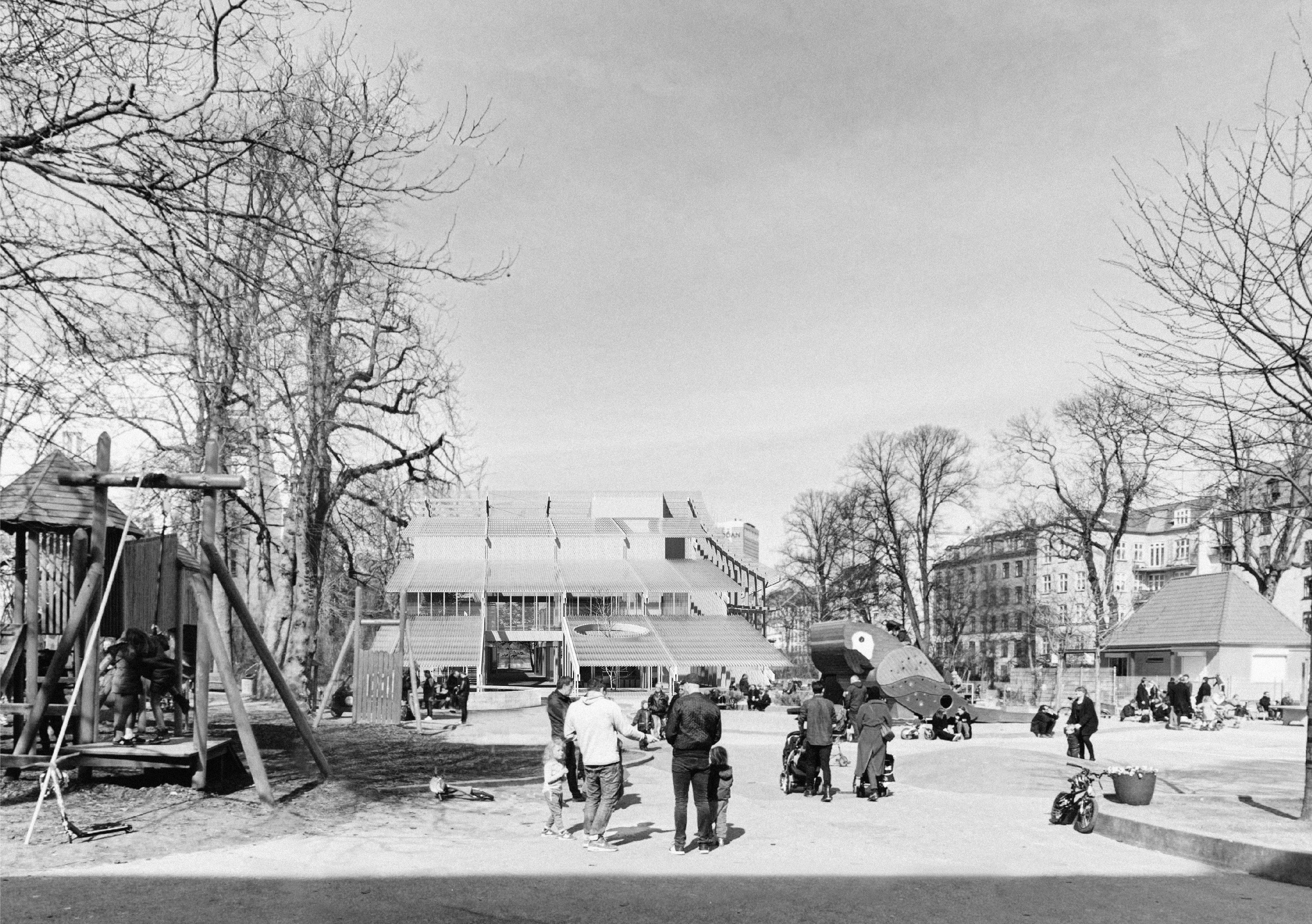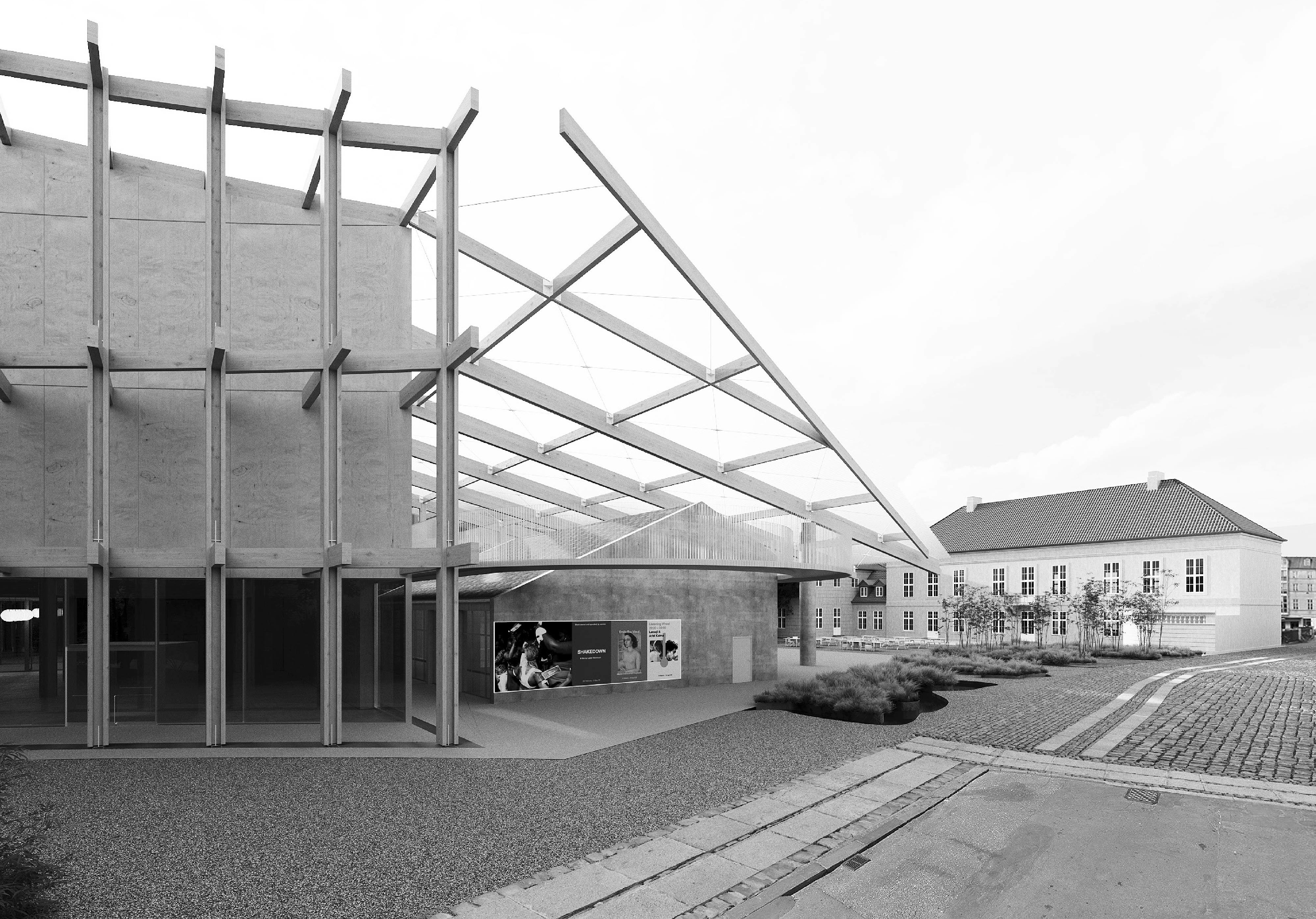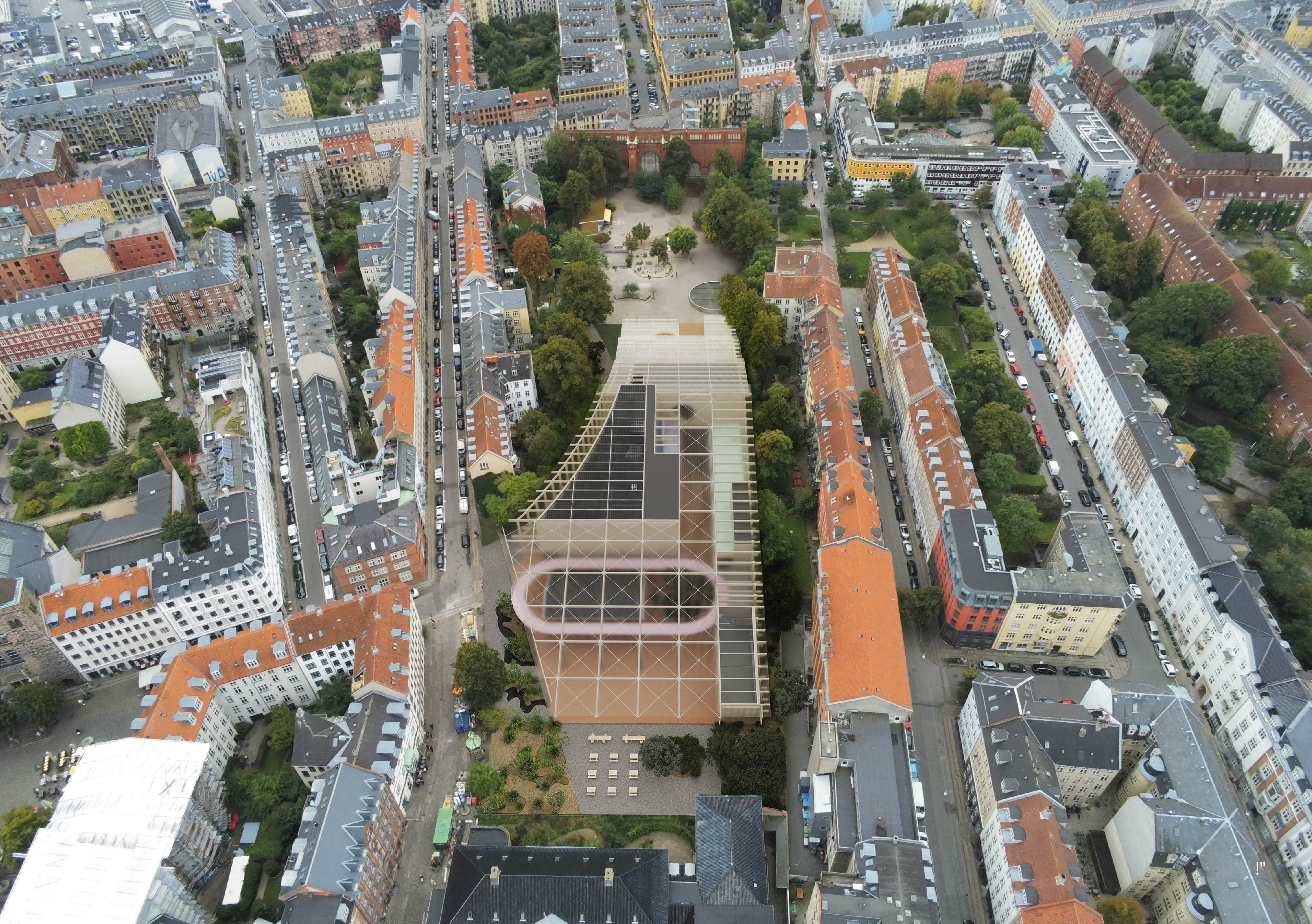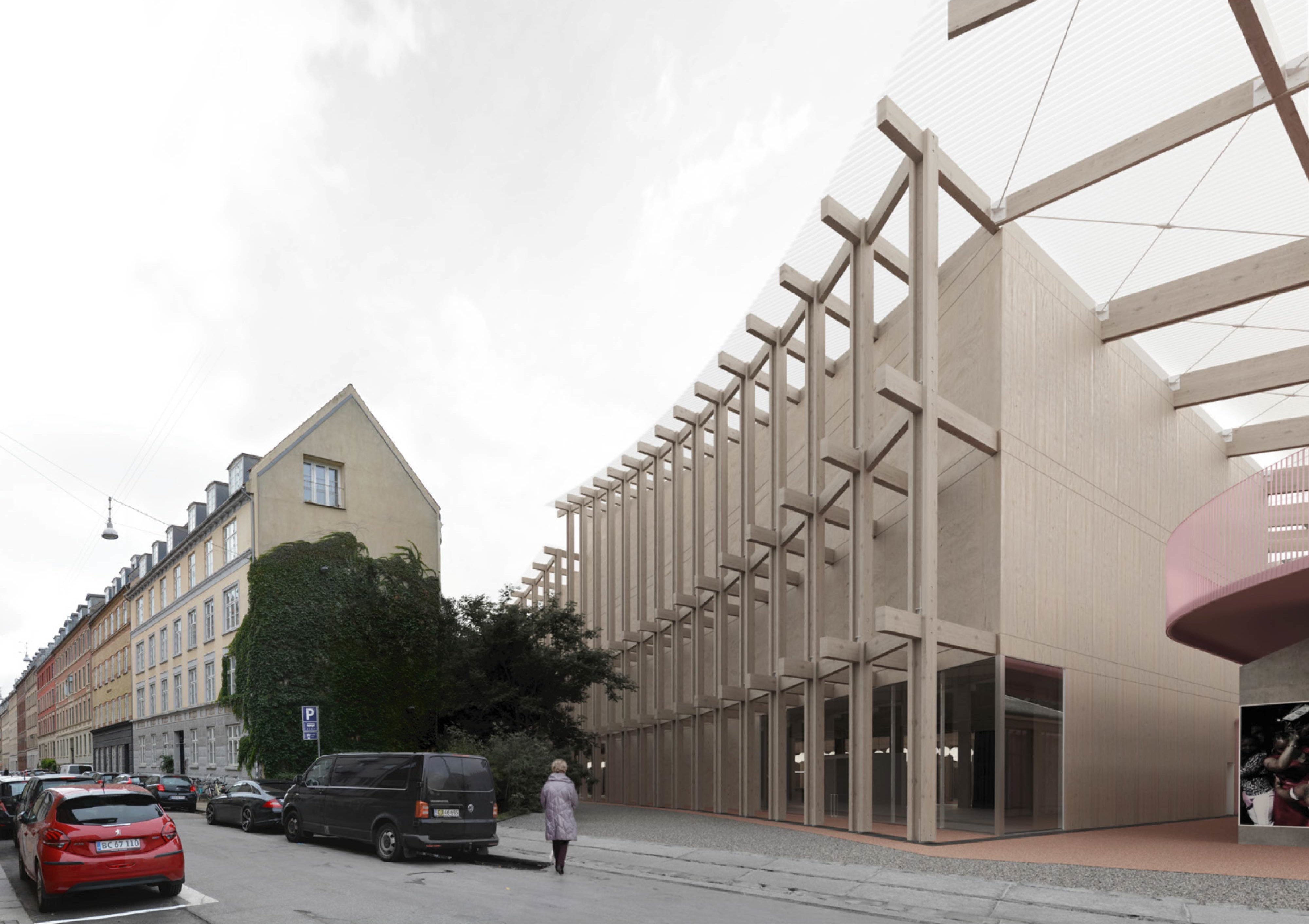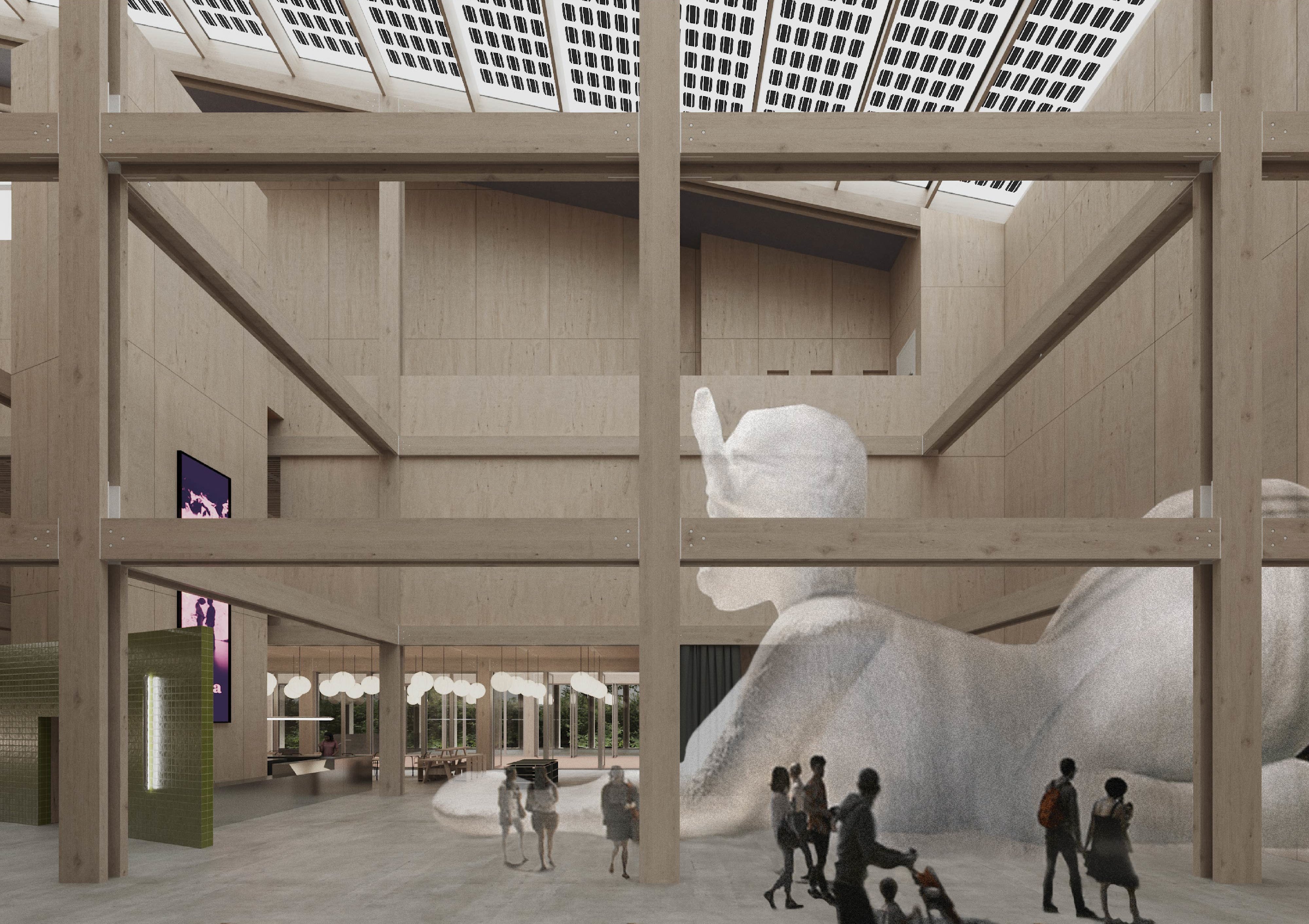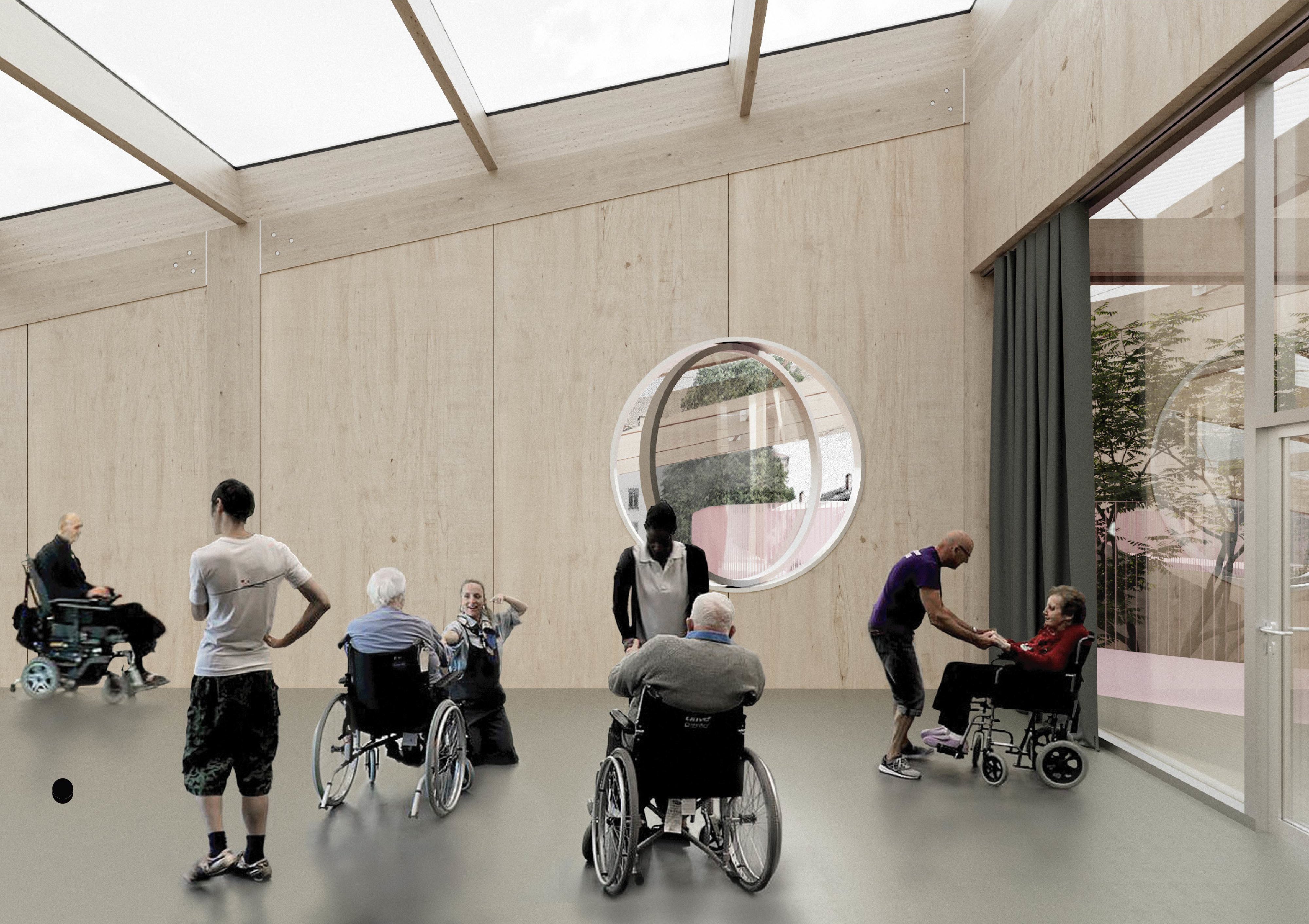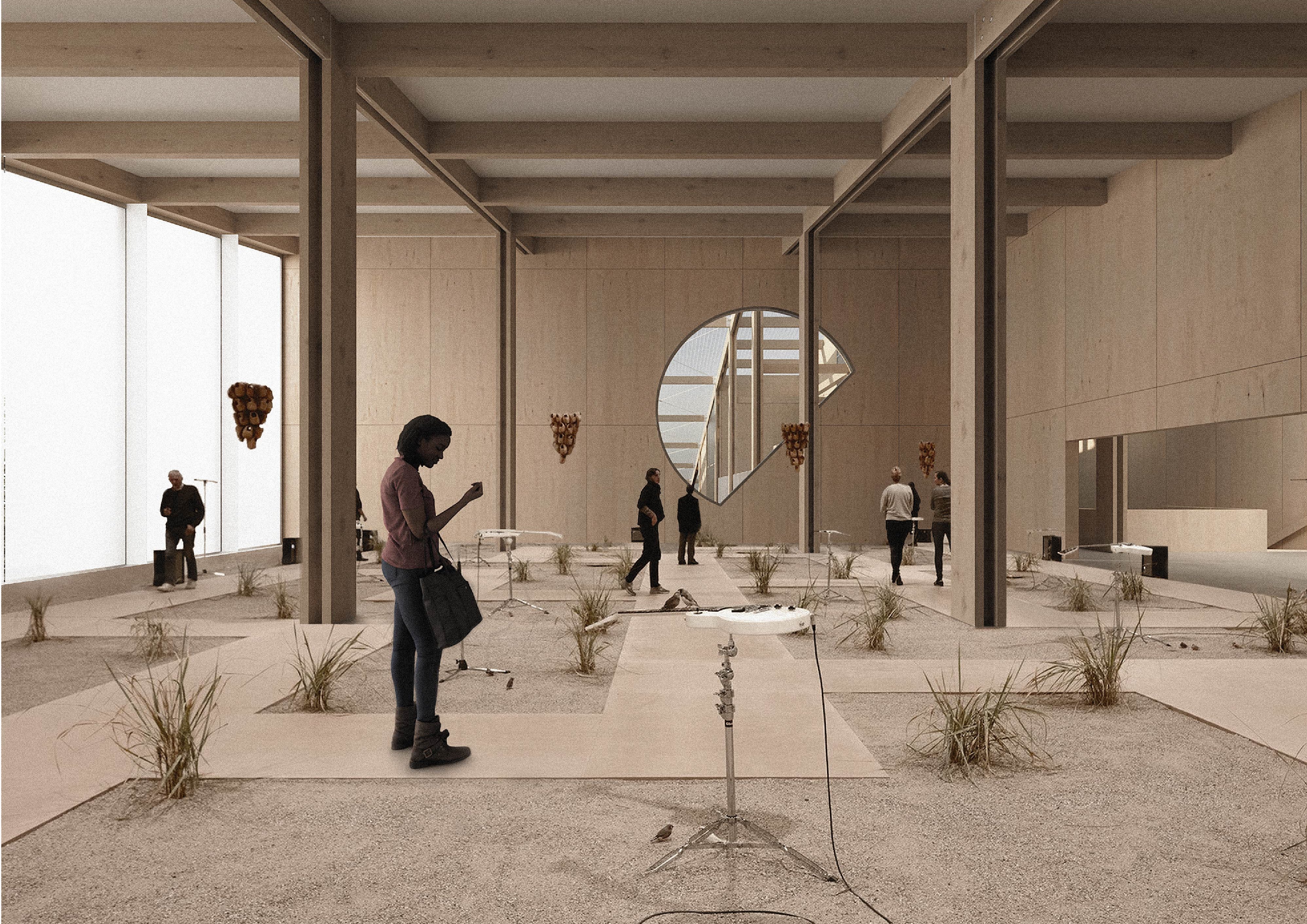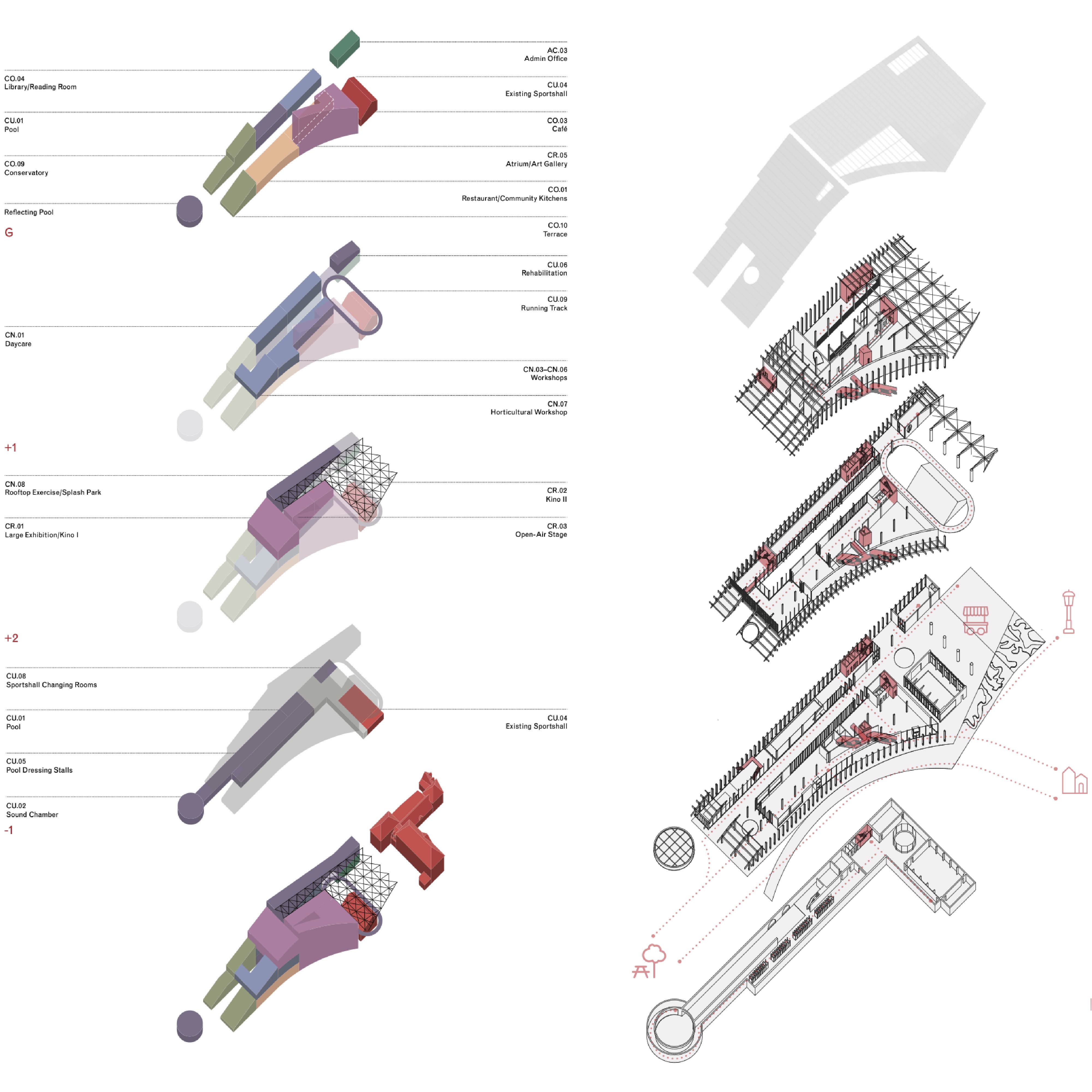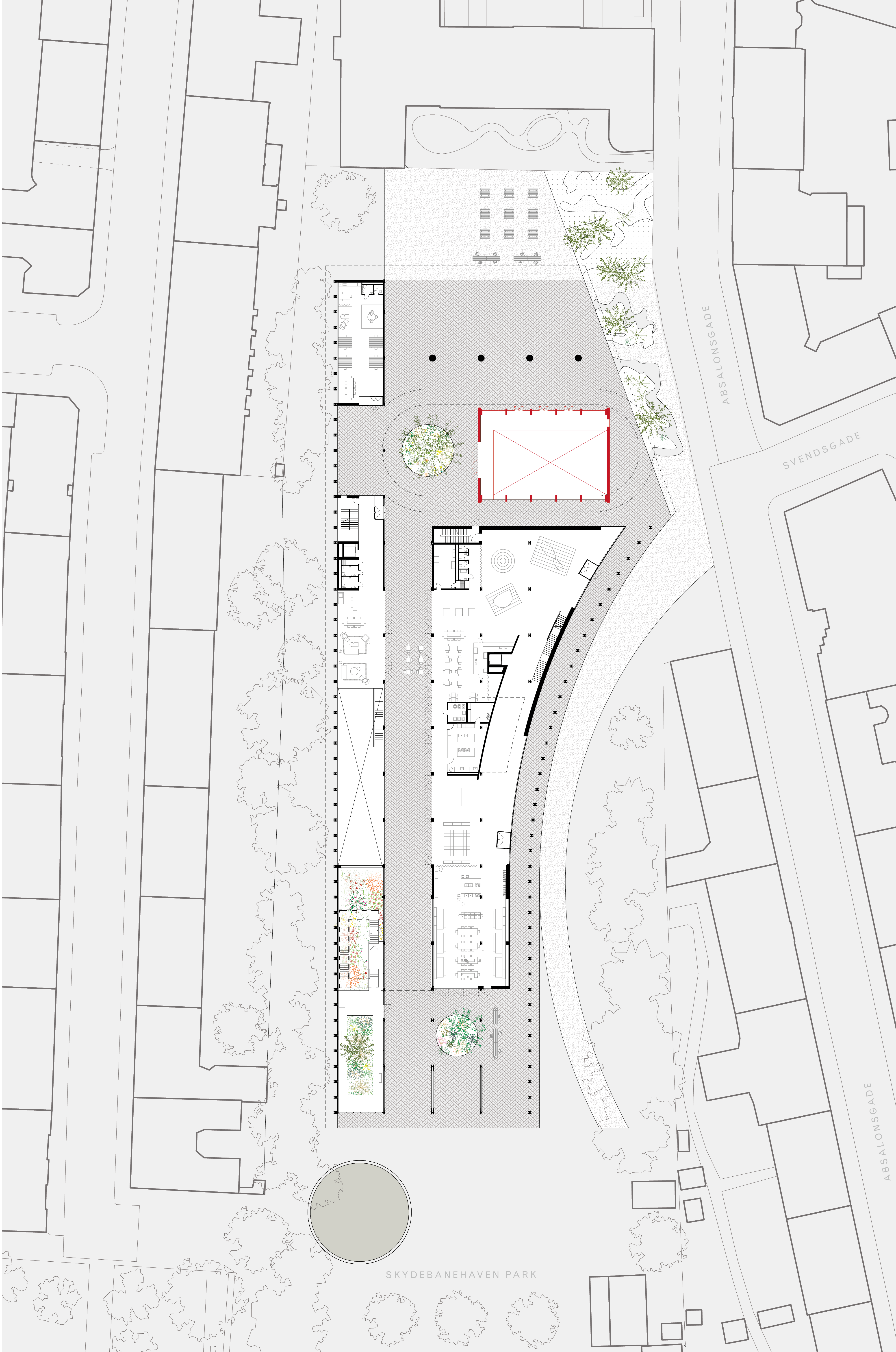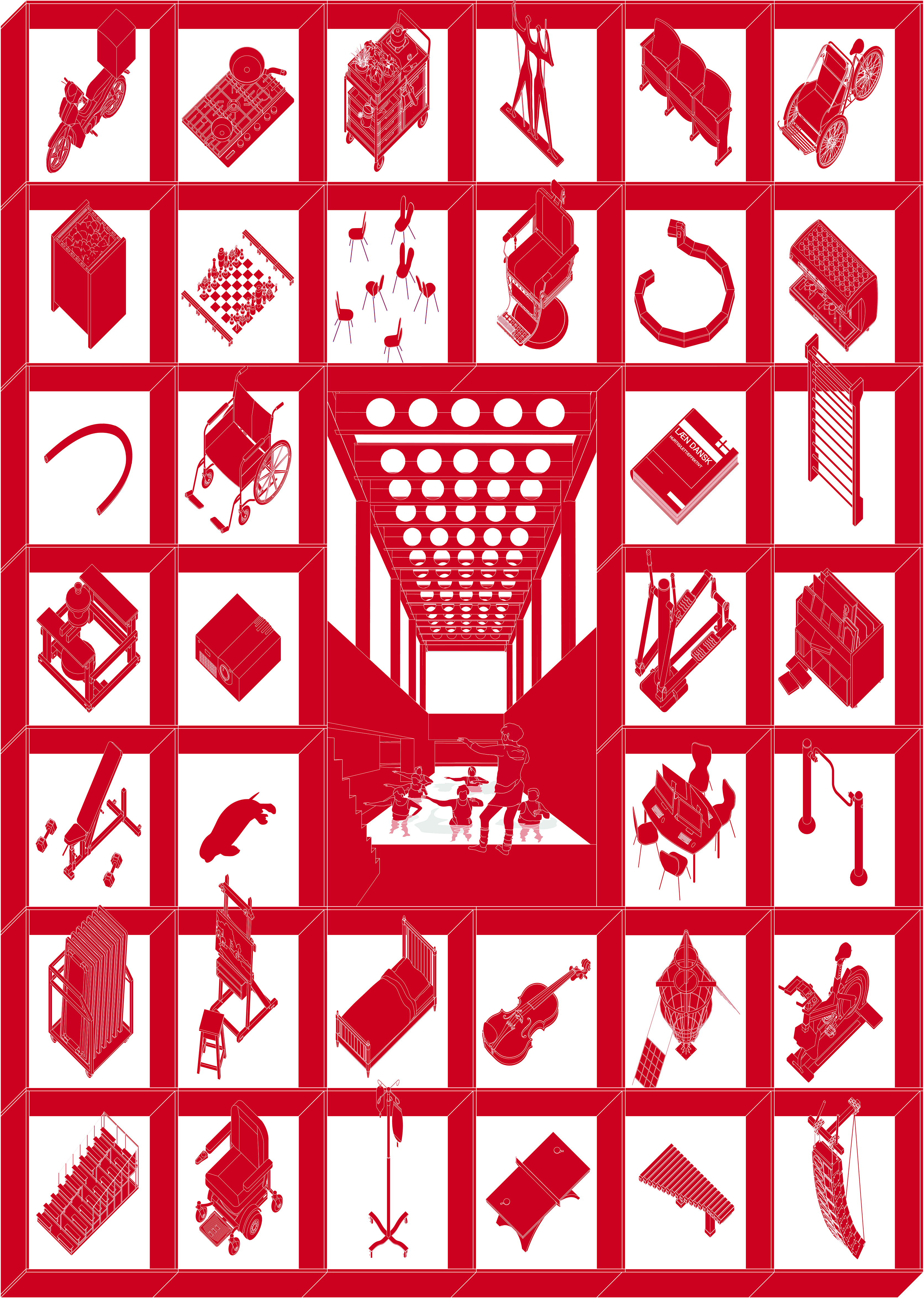Jeffrey Yuncheng Deng
Public Building
Student: Jeffrey Yuncheng Deng
Tutors: Paul Kuitenbrouwer (main mentor, A), Gilbert Koskamp (second mentor, BT) and Nathalie de Vries, Henk Bultstra, Sang Lee and Nicola Marzot, MSc3)
Title: Commons of Care
Studio: AR3AP131/AR4AP100 | MSc3/4 Public Condenser, The Hague - Copenhagen
Semester: Fall 2019 – Spring 2020
Abstract: “The production of the commons, spatially, presents a new notion of sharing, negotiation, and usage; architecture seeks to create new political forces, new ways of acting, and new forms of the local.”
Flavien Menu, New Commons for Europe, Leipzig: Spector, 2018.
Commons of Care is situated in Skydebanehaven Park within the post-renewal district of Vesterbro in Copenhagen, Denmark. As part of the chair of Public Building, the project plays on the two aspects of everyday life that concern the public as participants: commons and care, material and immaterial, goods and services. Implicit in the title is an acceptance that forms of care (daycares and elderly-care centres) are common goods. Care as a resilient urban marker provides a framework that concerns the marginalised multitude of the city, namely the immigrant (“newcomers”) and elderly (“late-agers”) populations in the city. The design is guided by four principles (cure, curation, collectivity, connectivity) that suggest multiple interventions for realising the aspiration for a public condenser. The concept of care legitimises coexistence between multiple communities where accessibility and inclusivity become benchmarks for a renewed definition of liveability in Europe.
Two assumptions were decisive for the development of the Commons of Care. One was the site, the 19th-century Skydebanehaven park that punctuates the Vesterbro district, and the other was the creation of a commons, a place in which the public visits on short or long intervals. From these two premises, the entire architecture was devised. Multiple forms of care will inform multiple forms of use: an architectural ensemble, an urban ensemble, an ensemble of learning, an ensemble of recreation, an ensemble of cultures, an ensemble of goods, an ensemble of people in commonality.
CARE: Guided by the principle that welfare ties to wellbeing and excludes no one.
CURE: Providing relief for the those in need, cure offers a support network.
CURATION: The verb “to care” derives from the Latin ‘curare’ which is inscribed etymologically in the word “to curate”.
COLLECTIVITY: Cure and curation come within a collaborative framework of shared identity: assemblage, togetherness, solidarity, belonging.
CONNECTIVITY: Offer new opportunities in the city that connect to people who might otherwise be excluded or marginalised.
Jeffrey Yuncheng Deng graduated cum laude in the Public Condenser - Copenhagen Studio, under the supervision of Ir. Paul Kuitenbrouwer and Ir. Gilbert Koskamp. His design manifesto was completed under Dr. Nicola Marzot and his research paper under Dr. Sang Lee. His master’s thesis concerns the role of the commons in Europe through a cross-disciplinary study of care. Building technology reinforced his deeply inquisitive approach towards the practice of architecture and design that seeks to challenge the status quo of cradle-to-grave construction method. Reflecting and precipitating the effects of architecture in society towards wealth, gender, class, race, and the environment, the project establishes a new setting for multiplicity to take place in the city.
